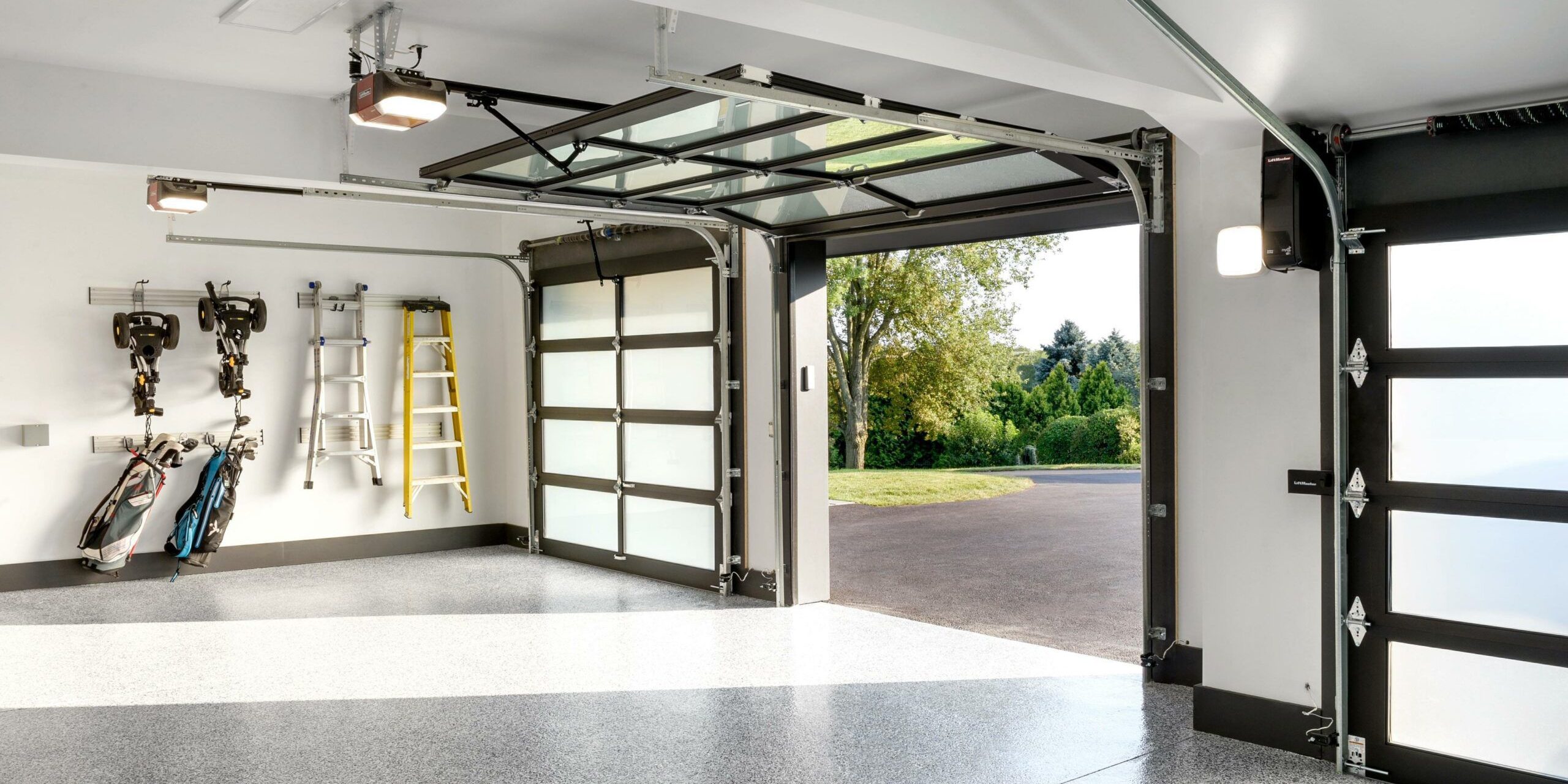Are you tired of staring at your dull, stained garage floor? Are you yearning for a sleek, durable solution that not only enhances aesthetics but also boosts functionality? Look no further – it’s time to explore the transformative world of garage floor coating. In this comprehensive guide, we’ll walk you through the benefits, types, preparation steps, and maintenance tips, ensuring that your garage gets the attention it deserves.
Your garage floor, often overlooked, plays a crucial role in the overall appeal and functionality of your space. Garage floor coating is not just about aesthetics; it’s about investing in a durable, long-lasting solution that can withstand the challenges of daily use.
Benefits of Garage Floor Coating
Enhancing Durability and Longevity
Garage floor coating acts as a shield against the relentless wear and tear inflicted by vehicles, tools, and heavy equipment. It strengthens the surface, preventing cracks and ensuring your floor stands the test of time.
Protection Against Stains, Spills, and Wear-and-Tear
One of the primary advantages of coating your garage floor is the protection it offers against oil stains, chemical spills, and the general wear caused by frequent foot and vehicle traffic. Say goodbye to unsightly blemishes and hello to a pristine garage.
Improving Aesthetic Appeal
Beyond durability, garage floor coating brings a touch of elegance to your space. Choose from a variety of finishes and textures to customize the look of your garage, turning it into an extension of your home.
Types of Garage Floor Coatings
Epoxy Coatings: Strengths and Weaknesses
Epoxy coatings are renowned for their strength and resilience. However, it’s crucial to understand their limitations, such as sensitivity to temperature fluctuations and potential yellowing over time.
Polyurethane Coatings: A Durable Alternative
For those seeking a robust, flexible solution, polyurethane coatings are an excellent choice. They provide superior resistance to chemicals and UV rays, ensuring a long-lasting finish.
Acrylic Coatings: Balancing Affordability and Performance
If budget considerations are a priority, acrylic coatings offer a cost-effective solution without compromising performance. While not as durable as epoxy or polyurethane, they still provide a protective layer for your garage floor.
Preparation Steps Before Coating
Cleaning the Garage Floor Thoroughly
Before diving into the coating process, it’s imperative to start with a clean slate. Remove dirt, grease, and any existing coatings to ensure optimal adhesion.
Repairing Cracks and Imperfections
Addressing cracks and imperfections in your garage floor is crucial for a smooth and even coating. Neglecting these issues can compromise the effectiveness of the coating.
Ensuring Proper Ventilation for Coating Application
Proper ventilation is often underestimated in garage floor coating projects. Ensure that your workspace is well-ventilated to facilitate a seamless application and drying process.
Choosing the Right Coating for Your Needs
Assessing Specific Requirements
Consider the unique needs of your garage. Are you looking for a heavy-duty solution for a workshop, or is a more decorative finish suitable for your space? Tailor your choice to fit your requirements.
Considering Climate and Environmental Factors
Climate plays a significant role in the performance of floor coatings. Some coatings may be better suited for specific climates, so it’s essential to factor in your local weather conditions.
Exploring Different Finishes and Textures
The beauty of garage floor coating lies in its versatility. Explore various finishes and textures to find the perfect match for your style, whether it’s a high-gloss shine or a more muted matte look.
DIY vs. Professional Application
Pros and Cons of a DIY Project
Embarking on a do-it-yourself garage floor coating project can be a rewarding experience. However, it’s essential to weigh the benefits against potential pitfalls, such as the learning curve and time investment.
The Value of Professional Expertise and Equipment
Professionals bring a level of expertise and efficiency that can be challenging to replicate in a DIY setting. They have access to high-quality materials and equipment, ensuring a flawless application.
Budget Considerations for Both Options
While DIY projects often come with lower upfront costs, the professional application may offer long-term savings by minimizing the risk of mistakes and ensuring the coating’s longevity.
Cost Factors
Understanding the Cost of Materials
Different coatings come with varying price tags. Understand the costs associated with your chosen material, factoring in the square footage of your garage.
Factoring in Labor Costs for Professional Application
If you opt for a professional application, labor costs will be a significant component of your budget. Obtain quotes from reputable contractors and factor this into your overall investment.
Potential Long-Term Savings and Benefits
It’s essential to view garage floor coating as a long-term investment. While the initial costs may seem significant, the durability and low maintenance requirements can result in substantial savings over time.
Maintenance Tips for Coated Garage Floors
Cleaning and Maintaining the Coated Surface
Maintaining the integrity of your garage floor coating involves regular cleaning. Use mild detergents and avoid harsh chemicals to preserve the coating’s finish.
Addressing Potential Issues Promptly
If you notice any signs of wear, such as chipping or peeling, address them promptly to prevent further damage. Small repairs can go a long way in extending the life of your floor coating.
Periodic Inspections and Re-Coating Considerations
Regular inspections allow you to catch issues early on. Consider periodic re-coating to refresh the appearance and reinforce the protective properties of your garage floor coating.
Common Mistakes to Avoid
Rushing Through the Preparation Process
One of the most common mistakes in floor coating projects is rushing through the preparation phase. Take the time to clean, repair, and ensure your garage floor is ready for coating.
Overlooking the Importance of Proper Ventilation
Proper ventilation is not only crucial during application but also for the curing process. Overlooking this aspect can lead to uneven drying and potential issues with the coating.
Neglecting to Follow Manufacturer Guidelines
Every coating comes with specific guidelines from the manufacturer. Neglecting these instructions can result in suboptimal performance and may void warranty coverage.
Testimonials and Success Stories
Real-Life Experiences
Explore real-life experiences of individuals who have transformed their garage floors. Learn from their challenges and successes to make informed decisions for your project.
Before-and-After Transformations
Witness the remarkable transformations that garage floor coating can bring. Before-and-after images showcase the visual impact and highlight the potential of your garage makeover.
Tips and Insights from Successful Projects
Glean valuable tips and insights from those who have successfully tackled floor coating projects. Their wisdom can guide you through potential pitfalls and ensure a smoother process.
Frequently Asked Questions (FAQs)
Q1: What is garage floor coating, and why is it necessary?
A: Garage floor coating is a protective layer applied to the surface of your garage floor. It’s necessary to enhance durability, protect against stains, and spills, and improve the overall aesthetic appeal of the space.
Q2: How long does garage floor coating last?
A: The lifespan of floor coating depends on various factors, including the type of coating and how well it’s maintained. Generally, quality coatings can last anywhere from 5 to 10 years or more.
Q3: Can I apply garage floor coating myself, or should I hire a professional?
A: Both options are viable. DIY projects are possible, but they require careful preparation and application. Hiring a professional ensures expertise and efficiency but comes with additional costs.
Q4: What types of garage floor coatings are available?
A: There are different types, including epoxy, polyurethane, and acrylic coatings. Each has its strengths and weaknesses, catering to different needs and budgets.
Q5: How do I prepare my garage floor before applying the coating?
A: Preparation involves thorough cleaning, repairing cracks, and ensuring proper ventilation. Adequate preparation is crucial for the coating to adhere effectively.
Q6: Are there eco-friendly options for garage floor coating?
A: Yes, there are eco-friendly coatings available. Water-based epoxy and polyurethane coatings are environmentally friendly alternatives with low VOC content.
Q7: Can I coat my garage floor if it has existing stains or damage?
A: Yes, in most cases. Proper preparation, including cleaning and repairing damaged areas, is essential for a successful coating application.
Q8: How much does garage floor coating cost?
A: The cost varies based on factors like the type of coating, square footage, and whether you choose a DIY or professional approach. On average, expect to invest anywhere from $1 to $5 per square foot.
Q9: Can I drive on a freshly coated garage floor immediately?
A: It depends on the type of coating. Some coatings allow light foot traffic within a day, while others may require several days before allowing any heavy loads.
Q10: How do I maintain a coated garage floor?
A: Regular cleaning with mild detergents, prompt repairs for any damage, and periodic inspections are essential for maintaining the integrity of your garage floor coating.
Conclusion
In conclusion, garage floor coating is not just a cosmetic enhancement but a strategic investment in the longevity and functionality of your garage space. By understanding the benefits, types, and key considerations, you can embark on a journey to transform your garage into a sleek and durable haven. Whether you choose a DIY approach or enlist professional help, the key is to prioritize quality and long-term value. Invest in your garage today, and reap the rewards for years to come. Transform your garage floor – your vehicle’s sanctuary – into a masterpiece that reflects your commitment to quality and aesthetics.

